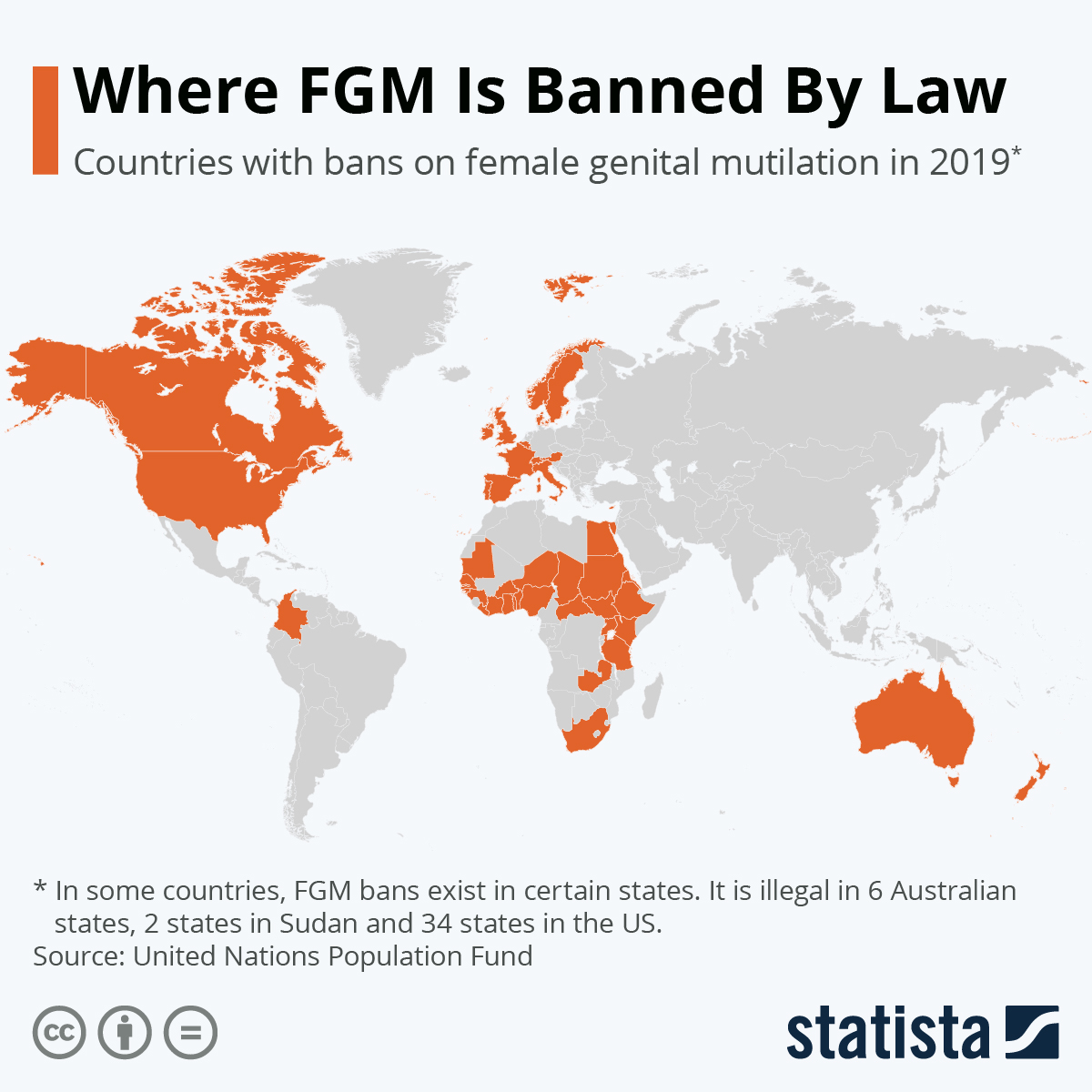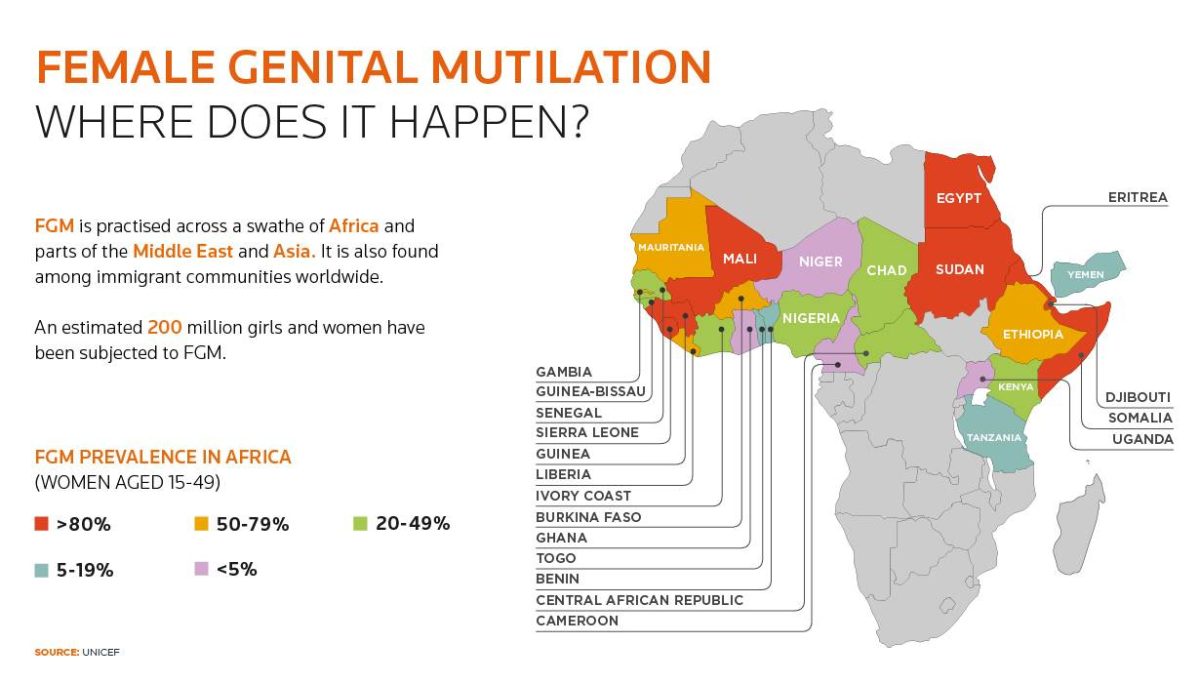Sudan is poised to join a growing list of nations around the world who have outlawed the practice of female genital mutilation (FGM). The northeastern African country’s council of ministers passed the law in recent weeks and its sovereign council is expected to do so soon, making it the land of the land.
FGM is the practice of cutting the external genitals of young girls from infancy to 15 years old for non-medical reasons. The practice is deeply embedded in Sudanese culture and that of many African and Asian countries, with many considering it a sacred and vital religious custom. More than 200 million girls and women alive today, living in more than 30 different countries, have undergone the procedure.
However, the practice has been strongly condemned by human rights and public health officials around the world. FGM is now known to lead to a variety of medical issues such as bleeding, cysts, increased risk of newborns deaths and more, according to the World Health Organization. These physical ailments pale in comparison to the untold trauma and suffering caused by the practice performed on little girls without their consent.
Sudan has among the highest rates of FGM in the world, with roughly 87% of the female population having undergone the brutal intervention. Sudanese activists and policymakers hope the new law will be a critical step in eradicating it altogether. If passed, anyone caught carrying out the practice will spend up to three years in prison.

However, proponents of the new law are quick to warn that while invaluable, the law alone is not enough. Eradicating the practice will require not only laws with strict consequences, but vigilance among law enforcement and communities and educational campaigns warning against the many harms of the practice.
FGM is a global issue that is particularly difficult for me to write about it. Personally, I find it repulsive and horrifying. The arrogance and invasiveness of religions who require the mutilation of little girls in order to feel spiritually pure makes me very angry. This does not feel like something we should have to be celebrating in 2020.
At the same time, I also know that all human cultures have profoundly ill-conceived conventions and beliefs, just as they all have beautiful customs. And as with most destructive conventions, I believe most of those who practice them do so not out of malice or hatred, but out of ignorance. They actually believe the FGM is vital to the spiritual well-being of girls and their communities.
We certainly need laws like this to provide a strong disincentive to continue the practice. We should all celebrate. But perhaps more than that, we also need to find a way to honor those who have clung to it this, to not shame them for the believes they were taught as children, to see their humanity, and to lovingly steer them toward a new way.



